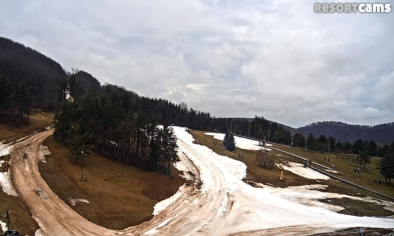Chicago records no snow on ground in January, February for 1st time in 146 years

For the first time in 146 years, the National Weather Service documented no snow on the ground in Chicago in January and February — a record that put a spring in the step of some but weighed down others worried about climate change.
Because the snow measurement is taken at 6 a.m. at O'Hare International Airport, small amounts of snow that may have fallen later in the day and melted were not recorded, said Amy Seeley, meteorologist with the National Weather Service. This occurred Feb. 25 when there was a trace of snow and Jan. 30 when there was 0.1 inch. The weather service has been keeping data on snow on the ground for 146 years.
...
WGN-TV meteorologist Tom Skilling said he believes the 146-year streak in Chicago is part of climate change and emphasized that it does not occur linearly, meaning that there is potential for cold winters in the future.
"This is occurring against a backdrop of a changing climate," Skilling said. "I think the door is open to additional unusual weather events as we go forward."
Other climate scientists say blips of weather, such as warm spells or snowless months, are too short of a time period to assign a true cause, and meteorologists point out that there are natural variances in weather over time that have nothing to do with climate change.
...
Skilling said Tuesday was the 73rd consecutive day that Chicago has not seen more than an inch of snow.
...
Typically, January and February are the snowiest months of the year, said Jim Angel, state climatologist at the University of Illinois' Illinois State Water Survey.
"It's pretty impressive for any place in the northern part of the state to go both January and February with no snow on the ground," he said.
Angel said warm air and ground temperatures contributed to the lack of snow accumulation, and this has affected trees, insects and animals.
Related Content




